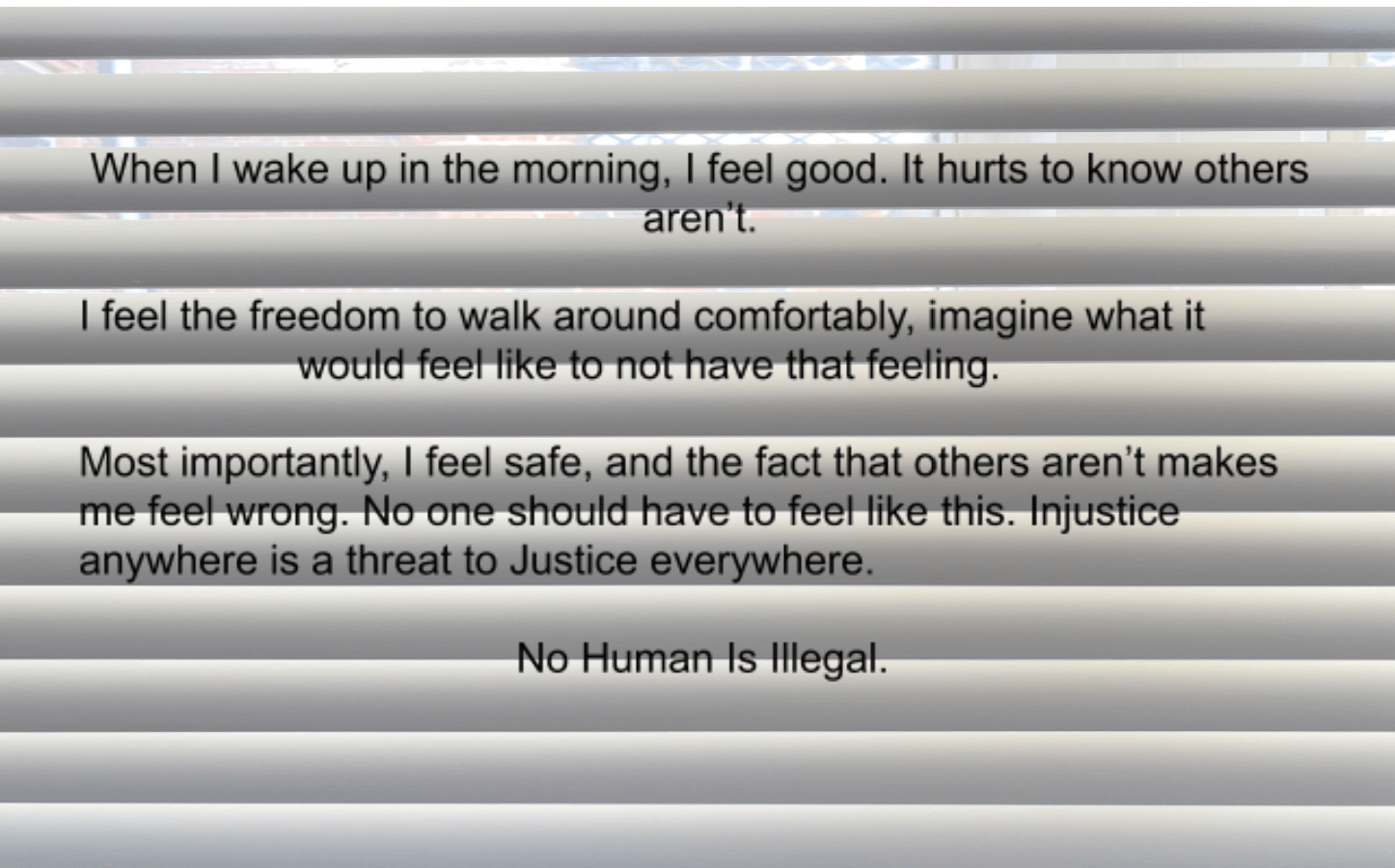
What motivates you to pursue justice?
“Anti-anti-semitism,” Zoey says. “I know Jewish people have experienced oppression in the past and that makes me want to fight oppression now.”
“My friend who has a different identity than me,” Remi says. “She is amazing and has gone through so much.”
Our BMitzvah cohort are true rodfei tzedek, seekers of justice, and our Torah study this year is going to allow them to share that passion with the whole of Makom Community!
The BMitzvah cohort will be reading the parashat hashavua (the weekly Torah portion) alongside most of the Jewish world. We’ll study each parasha in chevruta (pairs) and as a full class, looking to garner lessons to fuel weekly call to action posts on Makom Community’s Facebook and Instagram.
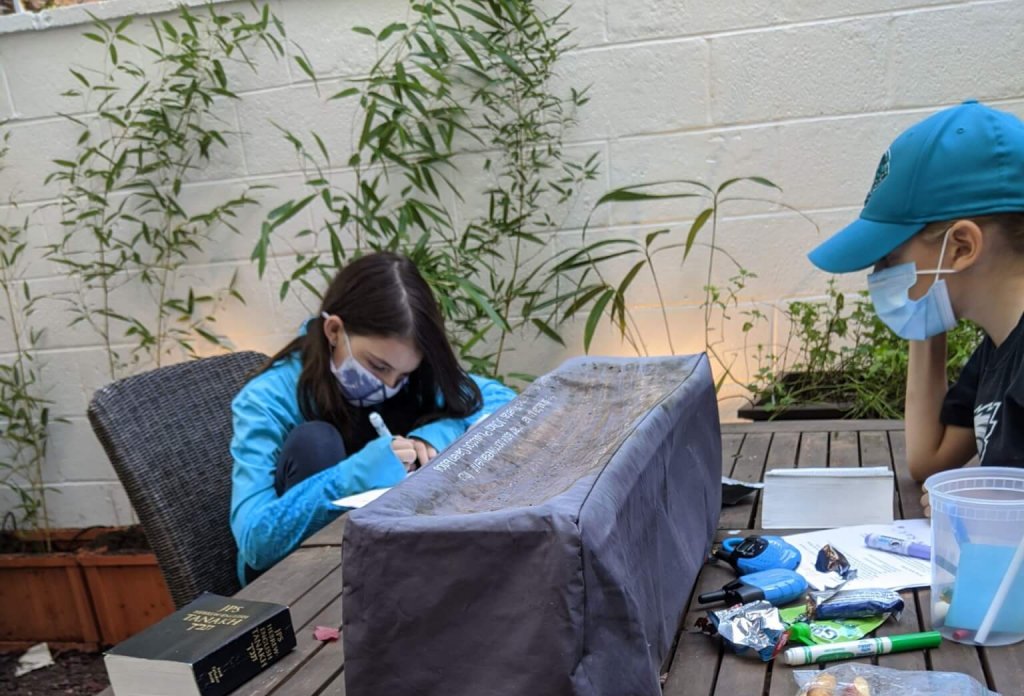
We started this year with a grounding in social justice, our Jewish tradition and ourselves. Looking inward, we wrote down as many identity markers about ourselves as possible.
Jewish, Eagles fan, straight, lesbian, white, student…
The cohort defined privilege and oppression and listed different spectrums of privilege and oppression. We came back to our identity lists and noted which identities give us privilege and which make us oppressed. Most of the cohort were more uncomfortable thinking about their privileged identities than their oppressed identities.
“I feel guilty when I think about my privilege sometimes, but then I remember that I didn’t choose to be born this way and the time I spend feeling guilty is better spent fighting for people who don’t have what I have,” Ronia said. Thinking about our own identities helps us see social issues from an intersectional perspective, aware of how complicated these issues are.
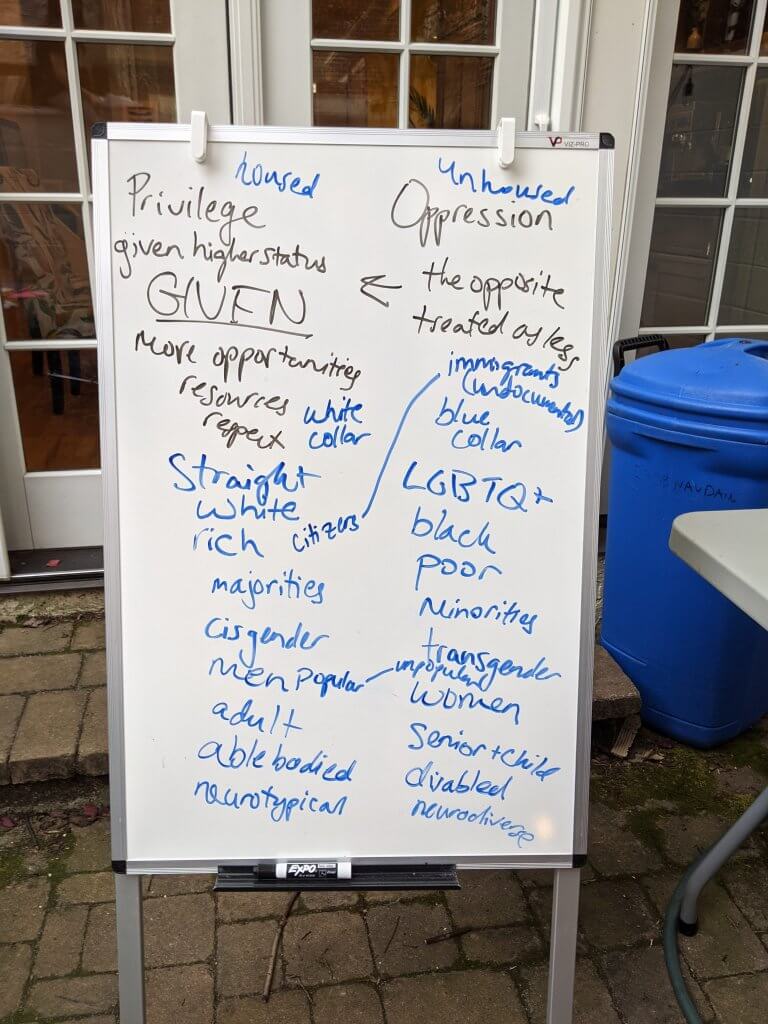
We focused in on one identity we all share: being Jewish! There’s so much of our tradition and history that can provide motivation when fighting for social justice. We looked at texts from all corners of our tradition, focused on the prophets, the Exodus from Egypt, Tikkun Olam (repairing the world), and B’tzelem Elohim (being made in God’s image). Some lessons we gathered from these texts:
- We can’t do it alone. The community takes care of each of us.
- Your fasting doesn’t mean anything if you keep slaves. You’ve got to be doing good work in the world!
- One person being hurt is unacceptable as we’re all made in God’s image.
There’s so much wisdom to be gained from tradition and from ourselves. The cohort made their first social media posts focusing on their own motivations for social justice:
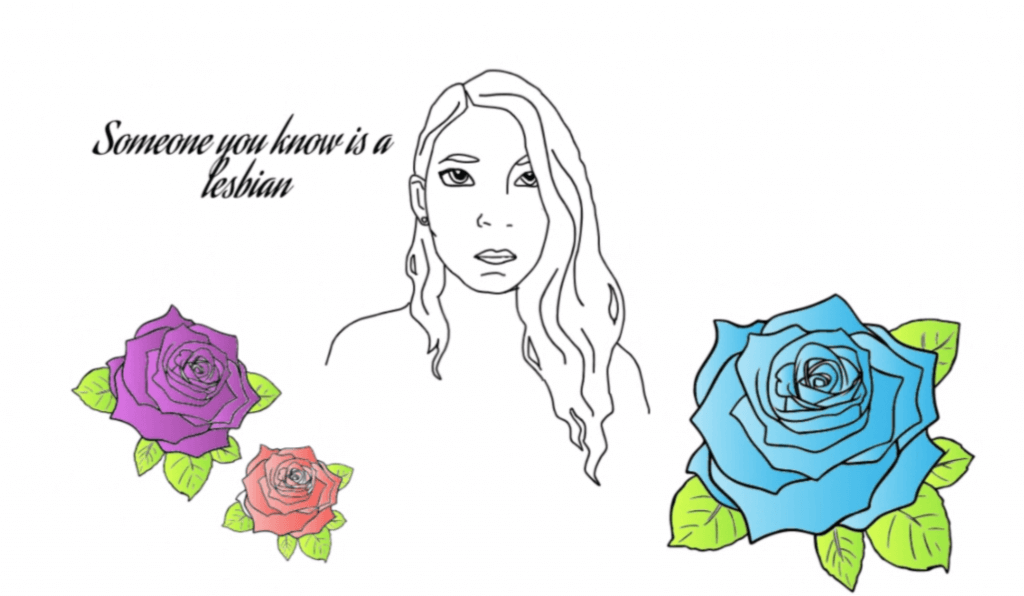
Then we looked at parashat Ha’azinu and drew wisdom from its lessons to inspire our next social media posts. This included, in the spirit of Justice Ruth Bader Ginsberg z”l, a fair amount of dissent with the text.
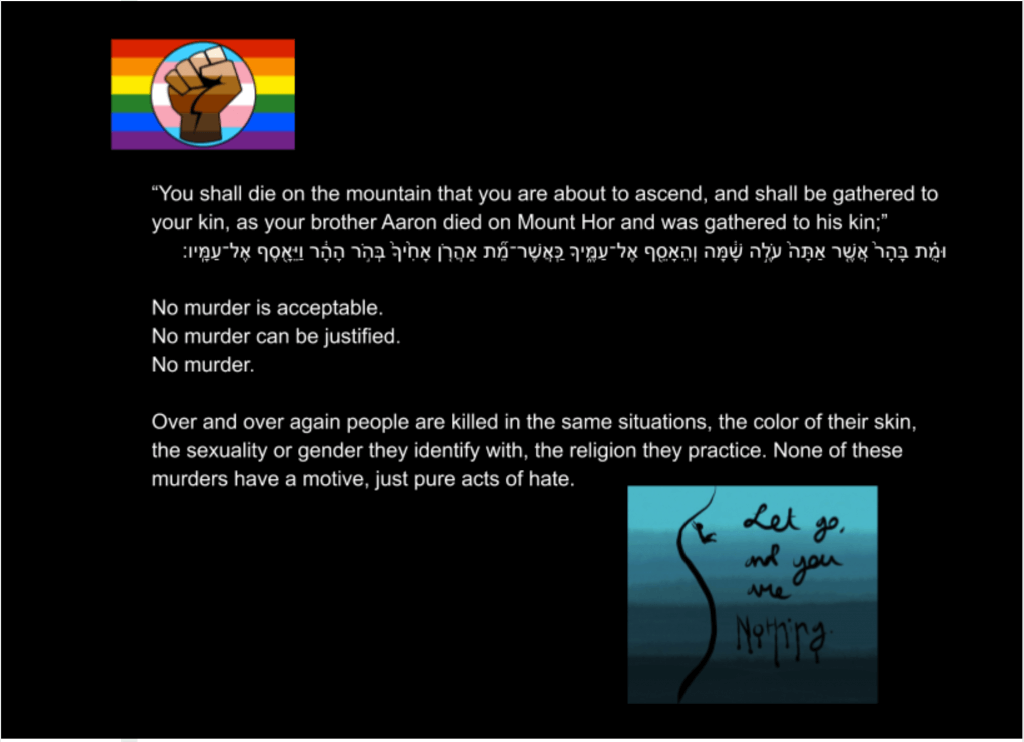
We’ll continue to study the parashat hashavua each week, garnering inspiration for our BMitzvah brit and ideas to share with the larger community. The cohort chose three core issues to focus on in our pursuit of social justice this year. Starting in November, we’ll be channeling our study of the weekly parasha to focus on issues of racial justice. In the winter, we will focus on LGBTQIA+ rights and in spring we’ll act on climate justice. I can’t wait to see the amazing actions and Torah this cohort brings into our community!
